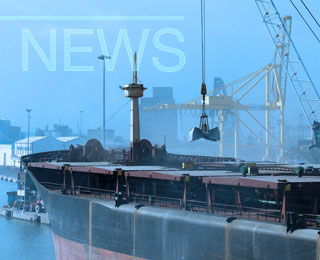In a move that seemed unthinkable just a few months ago, BHP Billiton confirmed last week that it had made a formal offer for rival Rio Tinto.
Such a merger would create a behemoth in the mining industry. So far Rio Tinto has rebuffed the Australian¹s $140bn all share bid, and indeed its stock price has already risen above the value of the offer. However it seems inevitable BHP will be back for more. Rio Tinto of course is still fresh off its own $38bn acquisition of Canada¹s Alcan. Earlier rumours of a takeover attempt by BHP were dismissed by many in the industry on competition grounds, particularly in the iron ore market. But there is now a growing school of thought that BHP could overcome such obstacles. Neither BHP nor Rio Tinto exports heavily to the US and European markets, causing some to believe it could avoid anti-trust issues. It is unlikely however BHP will be the only party interested in Rio Tinto. Analysts cite the strong possibility of Chinese interest in the company, or even a blocking effort by the country¹s state investors. And with oil prices at their current levels, Russian industrials also have plenty of acquisition money to play with.
Panamax rates slipped at the start of the week due to a build up of several early ships in the Pacific, and ballasters were evident in the Atlantic. By midweek however rates, particularly in the Atlantic, strengthened as short period interest increased. The market too was aided by a big upturn in the Cape market as Capesplit cargoes filtered into the Panamax sector. Short period for BPI type regularly traded at mid US$90,000’s and for 12 months in the low US$80,000’s. The BPI finished the week up 152 points and with an increase of US$1,168 on the 4 timecharters.
In the Handymax market we saw a week without any big change. All areas remained firm. In the Pacific shipowner are bullish. The average rate for a 52,000 dwt stands around US$72,000 per day. In the Atlantic, US Gulf remains steady. The index stands at US$92,200 per day for a trip to Continent. We notice a lack of ships in the Baltic. The situation in the Med is more contrasted with more ships being open and a few on ballast. Santos remains congested inducing pressure on South America trade.


